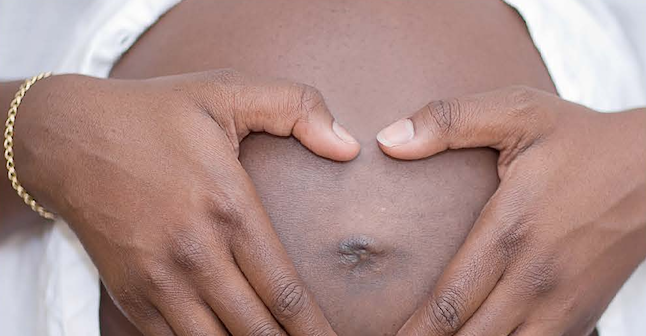Presidential Interdisciplinary Seed Grants
The THRIVE Project: Development of a doula communication intervention

The THRIVE Project: Development of a Mother-centered ‘Lay Doula’ Communication Intervention to Improve Black Maternal Outcomes

Black women are three to five times more likely to die from pregnancy-related trauma compared to White women 1, and empirical studies have suggested an association between poor maternal outcomes, race, and quality of patient-provider communication2–4. Inadequate and inappropriate information sharing by providers is associated with disempowerment 5, communication dissatisfaction 6, inauthentic identity expression because of fear of being stereotyped 6, depression and other pregnancy-related illnesses 7–11. On the provider side, improving the cultural competence of healthcare practitioners is often suggested 11–14, but there has been limited attention to patient-centered solutions that would provide critical support for Black women to navigate, survive and thrive despite a slow-changing healthcare system. Limited research has suggested that social support from trained and untrained personal aides can be associated with some positive clinical outcomes (i.e. reductions in need for analgesia and Caesarean sections, and increases in spontaneous vaginal deliveries without interventions like forceps or vacuum extraction15), and some psychosocial outcomes such as higher self-esteem and medical service satisfaction and wellbeing 15–17. Our aim in this proposal will be to suggest and justify the design of an intervention that elucidates the mechanisms of social support and its potential to improve Black maternal health outcomes, with a theoretical and practical focus on the role of communication science. To pursue this goal, we intend to conduct interviews and focus groups with Black doulas and Black mothers (Phase 1), which will inform the design and pilot testing of the intervention – a computer-based curriculum (Phase 2 & 3) to enhance Black mothers’ social support networks’ communication and advocacy skills as they all prepare for a hospital birth. This study is significant by directly addressing Black women’s urgent need for culturally appropriate information and care, and by integrating existing infrastructure within hospitals (birthing classes) and in communities (familial social support and Black doulas’ knowledge), which has practical implications to inform future practice and policy.
Team Lead
Soroya McFarlane
Communication Studies
scm17628@uga.edu
Team Members
Andrea Swartzendruber
Department of Public HealthEpidemiology & Biostatistics
Tamora Callands
Department of Health Promotion & Behavior
Diane Francis
Department of Communication Studies
Kallia Wright
Department of Communication Studies
